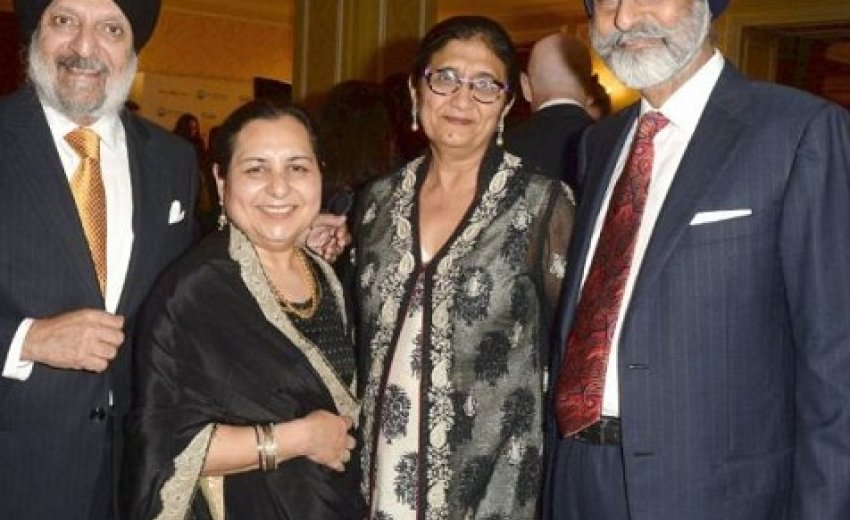Prime Minister will officially announce on Monday the names of those chosen to fill six Ontario vacancies in the upper chamber. Their appointments, sitting as independents, will be part of an historic transformation of the Senate, the Star has learned.
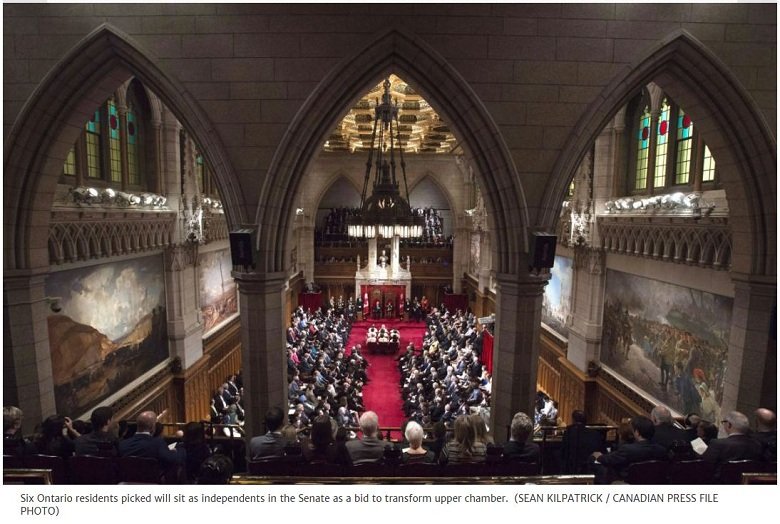
OTTAWA—A former top cop, a senior banker, securities regulator and social justice advocate are among the six Ontario residents headed to the Senate, the Star has learned.
Prime Minister Justin Trudeau on Monday will announce the names of those chosen to fill Ontario vacancies in the upper chamber — and their appointments will be part of an historic transformation of the Senate.
Those on the list are:
- Gwen Boniface, former commissioner of the Ontario Provincial Police.
- Tony Dean, a public policy professor who previously served as a senior bureaucrat in the Ontario government.
- Sabi Marwah, recently retired as vice-chairman and chief operating officer at Scotiabank.
- Lucie Moncion, president and chief executive officer of the Alliance des caisses populaires de l’Ontario.
- Kimberly Pate, executive director of the Canadian Association of Elizabeth Fry Societies.
- Howard Wetston, a former federal court judge who led the Ontario Securities Commission and Ontario Energy Board.
The new senators will sit as independents, key players in Trudeau’s attempt to transform the upper chamber into a less partisan and more respected institution.
That is driven home by Trudeau’s picks to fill current vacancies — all chosen for their career achievements, rather than party affiliations, a senior government official said.
“They’re not former candidates. They’re not former cronies or cabinet ministers,” the official told the Star.
Even the announcement itself of new senators is being carefully done to downplay suggestions of partisanship by not having them appear with the prime minister or cabinet ministers.
“It’s a deliberate decision because he wants (it) made clear that they’re not part of a Liberal caucus. They are truly independent,” the source said.
The six were among 2,700 applicants from across Canada who applied for a Senate spot as the Liberals for the first time opened up the senate selection process, part of the new arm’s-length process brought in early in the government’s mandate by Democratic Institutions Minister Maryam Monsef.
A committee, led by former public servant and University of Ottawa chancellor Huguette Labelle, sifted through the applications, ultimately recommending more than 100 names to Trudeau to fill 21 vacancies.
For the Ontario spots, Trudeau made the final selection from a list of 30 names.
Trudeau last week named five women and four men from British Columbia, Manitoba, New Brunswick, Nova Scotia and Prince Edward Island to the Senate. By the end of this week, it’s expected another six new senators will be named to fill vacancies from Quebec.
Together, the new additions will dramatically change the makeup of the Senate and how it operates.
When the newly appointed senators take their seats, the Senate will be faced with the unprecedented situation of having a plurality of independent senators.
“The change is happening fast,” the government official said.
The rather rapid change has already led to some tension in the Senate — an institution that does not traditionally deal with rapid changes.
Indeed, the changing makeup of senate membership is now expected to bring further pressure on the Senate to reform its practices, notably around committee memberships which give priority to those senators with party affiliations and limit the number of independent senators.
“The structure is now wedded to the past,” the official said.
“Why should the Tories and the Liberals have all the power on committees when they have declining share of members in the senate at large?” the official said.
Sen. Peter Harder, the Liberal government’s representative in the upper chamber, told the Star last month that independents do not have representation on Senate committees proportional to their numbers in the chamber.
While membership on Senate committees might seem like a minor issue, it’s where a large part of the chamber’s work on government legislation gets done.
Last week, Harder told the CBC he was attempting to change that through negotiations. But should those negotiations fail, Harder said, he’s considering forcing the Senate to vote on rejigging committee membership.
The transformation could have an impact on the Liberals’ policy agenda as well. By making the upper chamber more independent, no longer will the government be assured of getting its legislation through the Senate without challenge or amendment.
“Trudeau is aware of this. He’s never going to have a majority of people in the senate that he knows sit in this caucus room and would necessarily abide by what he wants,” the official said.
“So you have to work by persuasion,” he said.
Ontarians heading to the Senate
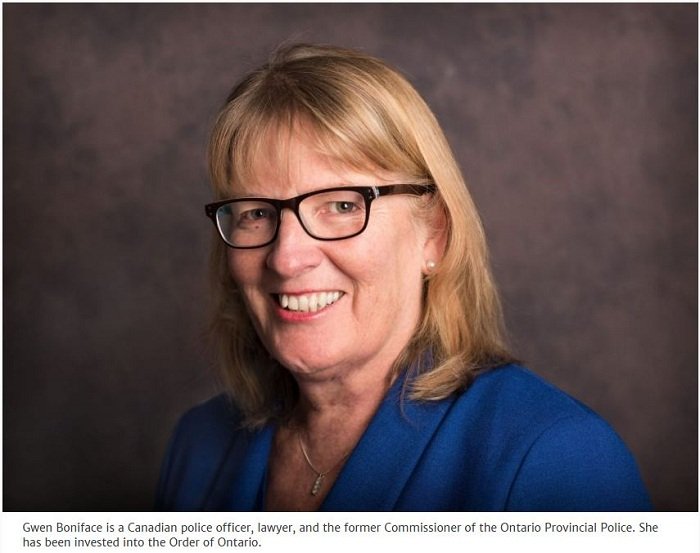
Gwen Boniface
Boniface rose through the ranks of the Ontario Provincial Police, breaking gender barriers along the way as she became the first ever woman to be named inspector, commissioner and president of the Canadian Association of Chiefs of Police. During her time as head of the OPP, police tactics came under fire during the controversial standoff with protesters in Caledonia. She left the OPP in 2006 for a policing job in Ireland and then served as an organized crime expert with the United Nations Police Division.
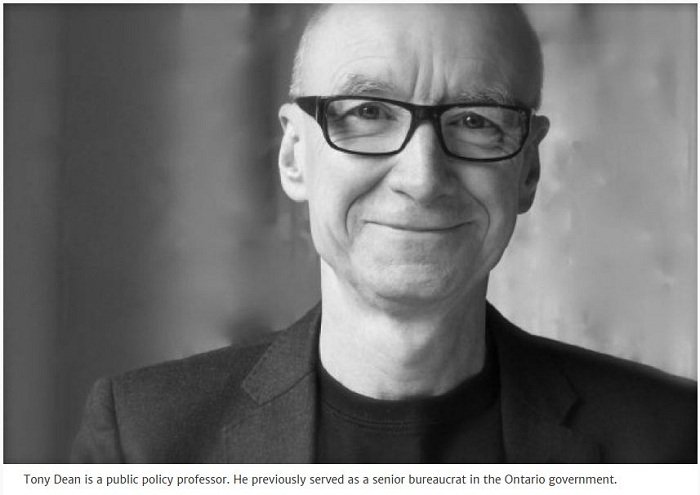
Tony Dean
Dean has been a professor at the School of Public Policy and Governance at the University of Toronto since 2009. Before that he was a senior bureaucrat at Queen’s Park, serving as a deputy minister, head of Ontario Public Service and Clerk of the Executive Council. He led a review of Ontario’s workplace health and safety system in 2010 and was later tapped as a go-between to repair the rift between teachers, school boards and the provincial government.
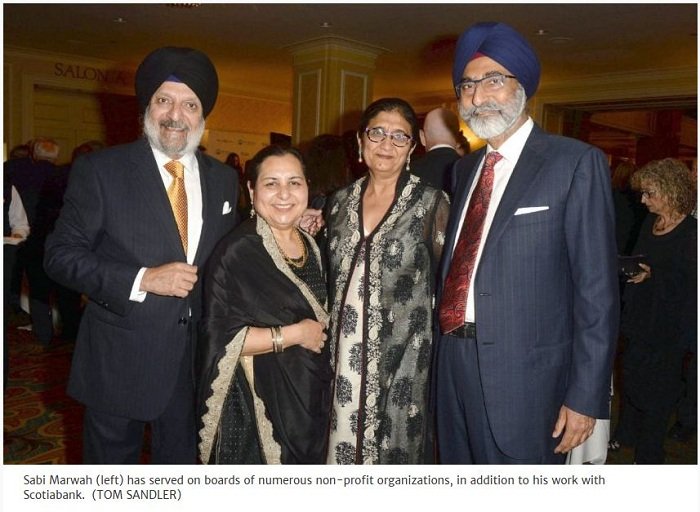
Sabi Marwah
Marwah retired as vice chairman and chief operating officer at Scotiabank in 2014, wrapping up a career that stretched more than 35 years at the bank. Marwah has been active outside the workplace, serving on the boards of non-profit organizations, such as the C.D. Howe Institute, the Royal Ontario Museum, the United Way Campaign, the Toronto International Film Festival and the Hospital for Sick Children. He is a founding member of the Sikh Foundation.
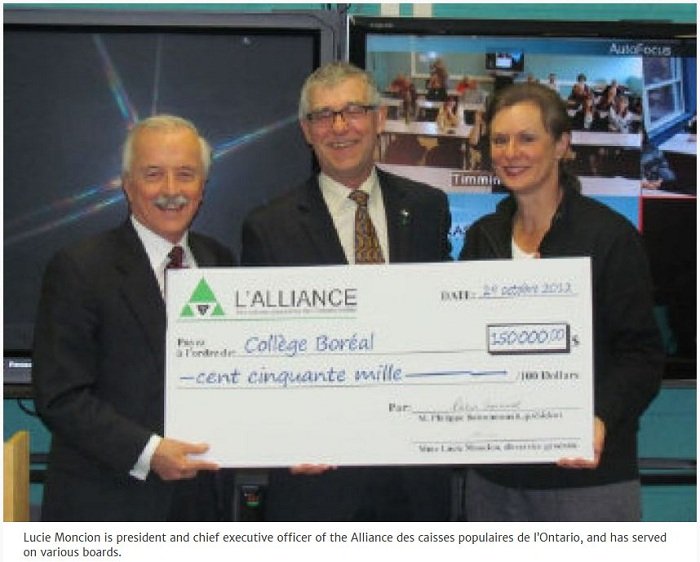
Lucie Moncion
Moncion is president and chief executive officer of the Alliance des caisses populaires de l’Ontario, a network of 12 credit unions that serve communities in northern Ontario. Moncion took on the role in 2001, when she became the first woman to hold such a position in a credit union federation in Canada. Moncion has served on various boards, including Nipissing University, Direction Ontario and Collège Boréal.
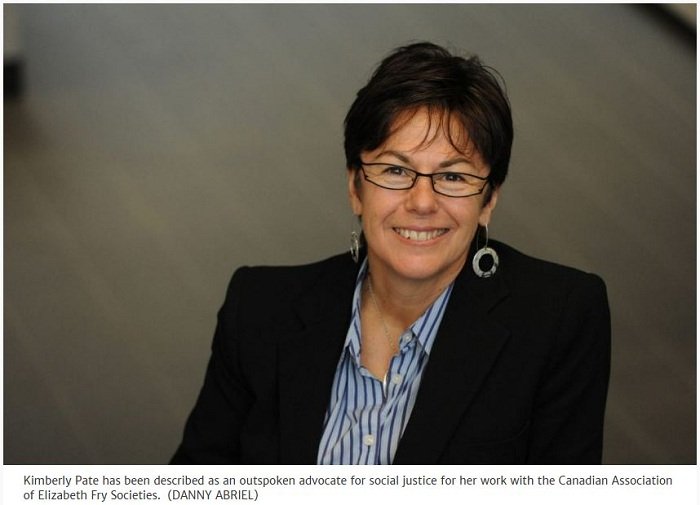
Kimberly Pate
Pate is executive director of the Canadian Association of Elizabeth Fry Societies. A lawyer, Pate has been a long-time advocate to improve conditions for women in prison and assist their reintegration into society. Pate, who is also a part-time professor in the University of Ottawa’s Faculty of Law, has also put a spotlight on aboriginal women and their overrepresentation in prisons. A member of the Order of Canada, Pate is involved with a number of groups, including Legal Aid Ontario’s Prison Advisory Committee.
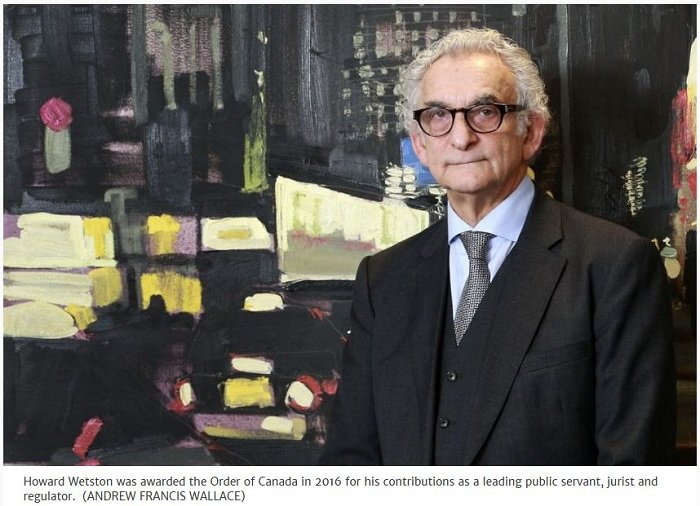
Howard Wetston
Currently with the law firm Goodmans LLP, and professor at the University of Toronto, Wetston led the Ontario Securities Commission between 2010 and 2015. Before that, he was chair and CEO of the Ontario Energy Board. He is a former Federal Court judge, worked as crown counsel with the Department of Justice and served as counsel with a number of federal agencies. He is a member of the Order of Canada.
